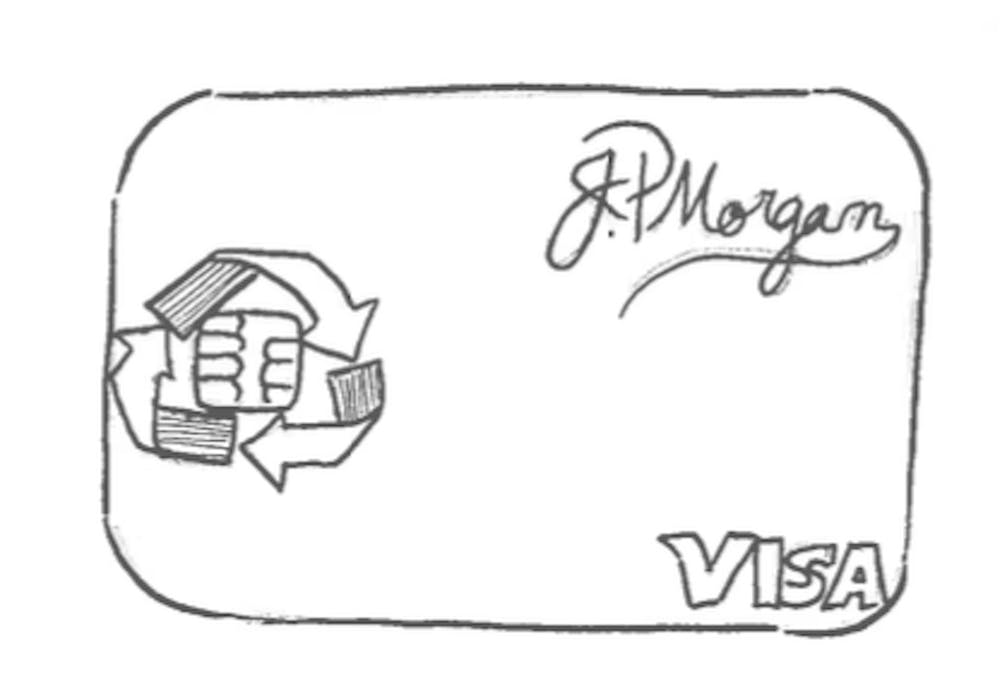Bill McKibben was arrested in a Chase Bank in Washington D.C. this February as part of an effort to stop big banks from funding the fossil fuel industry. The issue is closer to Middlebury than it might seem — the college currently contracts with Chase Bank, the world’s largest lender to the fossil fuel industry, for its purchasing cards.
College purchasing cards enable faculty and staff to make purchases and pay for travel on behalf of the college. Purchasing cards are also used for some expenditures on behalf of student organizations.
When McKibben, a scholar in residence at the college, realized that Chase Bank provides Middlebury’s purchasing cards — including McKibben’s own card — he contacted David Provost, executive vice president for finance and administration, to ask about changing the contract. Provost immediately agreed to explore alternatives.
“I said, ‘I am totally open to developing criteria that would align better with our mission,’” Provost said in an interview with The Campus.
Middlebury’s existing contract for the purchasing cards is shared with the other institutions in the Green Mountain Higher Education Consortium, which includes Middlebury, Champlain College and Saint Michael’s College. The contract expires in October 2021.
Provost noted that the college cannot break its contract without incurring significant penalties until then. But he said he supports doing a full request for proposal in the summer of 2021. The process of finding a new supplier will involve soliciting bids from other banks and determining Middlebury’s new selection criteria.
Ahead of seeking a new contract, Provost asked McKibben to provide a list of banks that the Middlebury community would support and that have the capacity to handle Middlebury’s national and international business.
McKibben told The Campus that the most suitable bank in the region is Amalgamated Bank, the largest union-owned bank in the United States, which is fully divested from fossil fuels. Amalgamated Bank issues Visa-branded purchasing cards.
The college has not made an official commitment to change banks to Amalgamated Bank, or any other bank, when the contract expires.
Provost expects that the other institutions in the consortium will follow Middlebury’s lead in seeking a new provider. “We represent the highest part of the transactions,” he said, referring to the college’s spending on the purchasing cards. “They’re benefiting from the rebate level because of our size.”
McKibben hopes Middlebury will publicly announce its intention to divest its purchasing cards. “That would certainly help others move in the same direction,” he said.
College will look into contracting with more sustainable bank for P-cards

Comments



